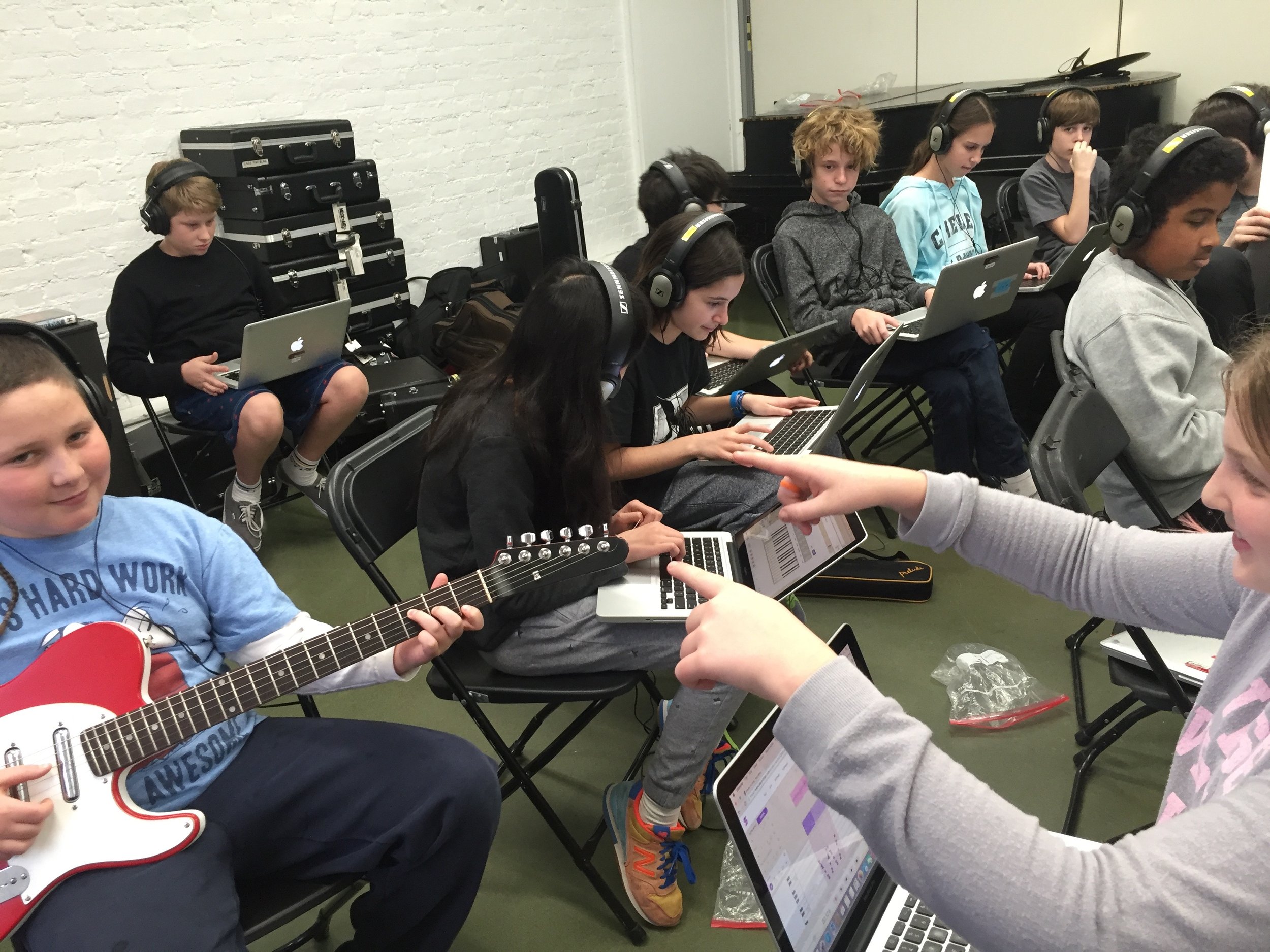Tip: Do All of the Projects You Assign Your Students
I know that some of you will read the title of this post and either laugh or get annoyed. I KNOW that there aren’t enough hours in the day. I KNOW that the last thing you will want to do either on your free period or at home is do more school work. I KNOW that most music teachers skip this step entirely for a wide variety of reasons. I also KNOW that if you do any of the projects that you assign your students - ESPECIALLY music technology projects - either alongside them or before they even get started, the results that the students produce will likely be vastly better than if you don’t. Here’s what I mean…
When I taught middle school general music back in the 2000’s, I made PBL (project-based learning) the central focus of my 6th, 7th & 8th grade curricula. Having students create projects to demonstrate their understanding of the musical concepts that I was teaching them was the clearest and most engaging method for my situation. My students did ALL kinds of projects - everything from making their own illustrated manuscripts to recording podcasts about popular music. The reason that I strongly advocate for doing the projects before assigning them OR alongside the students does two things:
It ensures that all aspects of the project (directions, requirements, materials, showcasing the final results) is both achievable and meaningful. Rather than just coming up with a list of project requirements and assuming that the students will be able to do them - and do them well - it becomes so much clearer when you try it yourself. Are you instructions clear? What issues did you run into? How much time did it take you to complete it? Are there requirements that are either too difficult or missing? In my opinion, you can’t know any of this unless you try it yourself.
The students will LOVE to see that you did the project yourself. Every time I showed the students what I did, it almost made them feel as though we were “in it together”. I would often use my efforts as an example with future classes - meaning once I did the project I could use my final product as an example without taking any extra time. Over the years, the sweat equity that you put in up front will pay huge dividends as the positive impact of the students seeing/hearing your work doesn’t get old for them - even if you did the projects years before.
Another benefit of doing the projects you assign, at least in my opinion, is that you get to explore music again. If you are wanting to get your students to compose - take time to compose yourself. You might just find that it is a very powerful and engaging experience for your own musical growth. If you want your students to make a podcast - do it yourself! You might just find that you enjoy podcasting and might even have a lot to share with the profession. I can tell you that the MAJOR reason that I enjoy podcasting is that I used to have my students create podcasts all the time. If you want your students to compose using notation software, try doing it yourself? What do you find difficult about the process? What instructions do you think you’ll need to include to avoid students running up to you all the time asking you the same questions? Believe me - if you assign a project without doing it yourself, it will quickly become apparent where your instructions and requirements fall short when you have a line of students at your desk to ask you a question OR you have a bunch of students with their hands raised waiting for you to help them.
I KNOW that you might not think you have enough time in the day to do this. One option is to do at least ONE project per marking period and spread the work out over the school year or even a couple of years. I promise that any efforts you put in will pay tremendous dividends. From my personal experience, student projects WILL get better. Student engagement WILL improve. And believe it or not, your own musicianship and creative spirit might just get a little brighter. For me. this was a major way to improve my outlook on teaching and my own personal perception of my musical skills. Try it! You just might find that the same applies to you.



